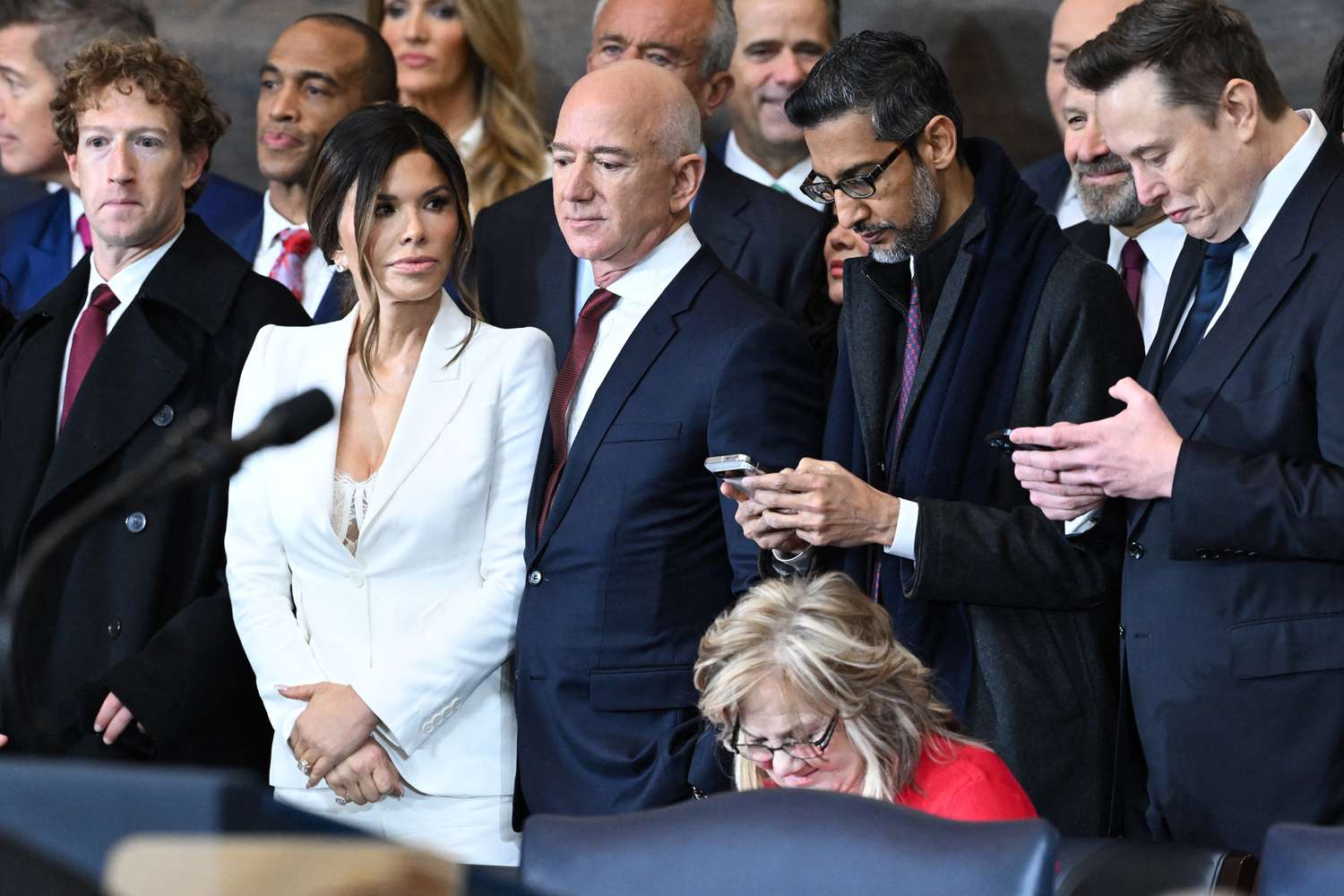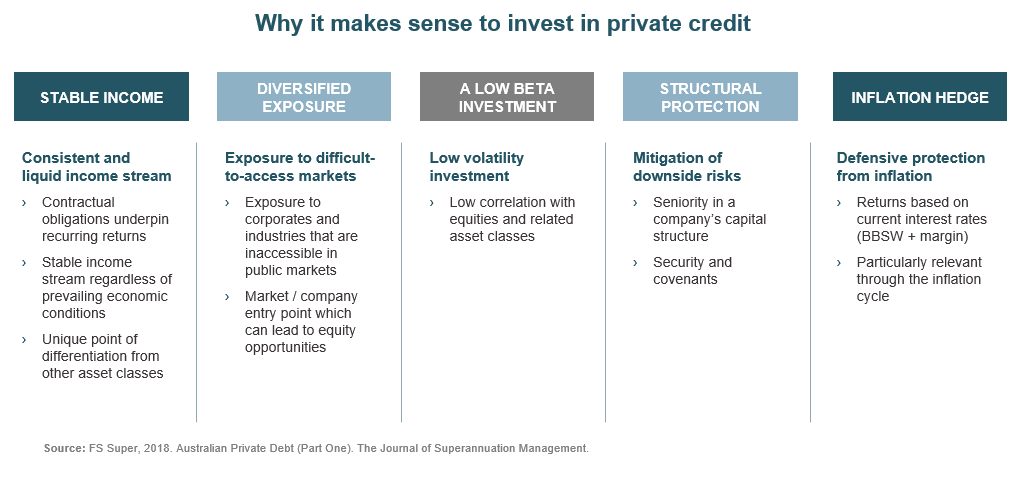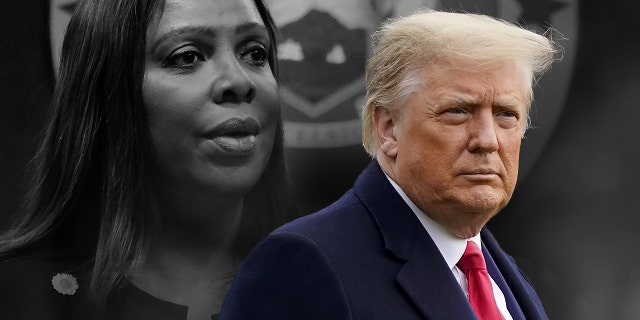Zuckerberg And Trump: A New Era For Tech And Politics

Table of Contents
Facebook's Role in Trump's Political Rise
The Trump presidential campaign's success was undeniably intertwined with its sophisticated use of Facebook. The campaign’s masterful use of targeted Facebook advertising played a crucial role in reaching specific voter demographics with tailored messages. This section examines the impact of Facebook's advertising tools on the 2016 election.
-
Targeted Advertising: The Trump campaign effectively leveraged Facebook's micro-targeting capabilities, creating highly personalized ads targeting specific demographics based on factors like age, location, interests, and even browsing history. This allowed them to deliver customized messages directly to potential voters who might be receptive to their message, maximizing the campaign's advertising budget.
-
Dissemination of News and Misinformation: Facebook also served as a primary channel for disseminating news and information (and misinformation) during the campaign. The platform's algorithms amplified certain messages, often regardless of their veracity, leading to concerns about the spread of fake news and its impact on voter perceptions.
-
Effective and Ineffective Strategies: While the Trump campaign successfully used Facebook to connect with voters, not all strategies were equally effective. Analyzing successful campaigns alongside those that underperformed offers valuable insights into the platform's power and limitations in political advertising. For example, certain emotionally charged ads garnered considerable engagement while others were ignored. Understanding why some ads succeeded and others failed holds important lessons for future political campaigns.
The Cambridge Analytica Scandal and its Fallout
The Cambridge Analytica scandal exposed the vulnerabilities of Facebook's data protection measures and significantly impacted the political landscape. This data breach involved the harvesting of personal data from millions of Facebook users without their consent. This information was then allegedly used to influence the 2016 US election. This section focuses on the ramifications of this incident.
-
Data Harvesting and Misuse: Cambridge Analytica, a political consulting firm, obtained access to vast quantities of Facebook user data through a personality quiz app. This data was then used to create highly targeted political advertising and allegedly influence voter behavior.
-
Ethical Implications: The scandal raised serious ethical concerns regarding data privacy and the misuse of personal information for political purposes. It highlighted the lack of transparency and accountability in the collection and use of user data by both Facebook and third-party applications.
-
Regulatory Scrutiny and Consequences: The scandal triggered widespread regulatory scrutiny of Facebook and resulted in significant fines and legal challenges. The long-term impact on user trust and Facebook's reputation remains profound. It spurred global conversations about data protection legislation and reinforced the need for greater transparency and accountability from tech companies.
The Broader Impact of Social Media on Political Discourse
Social media's pervasive influence on political discourse is undeniable, and this section will examine the complex relationship between online platforms and political polarization.
-
Shaping Public Opinion: Social media platforms, especially Facebook, have become significant forces in shaping public opinion. The algorithms employed by these platforms determine what users see, potentially creating filter bubbles and echo chambers that reinforce existing beliefs and limit exposure to diverse viewpoints.
-
Spread of Misinformation and Fake News: The ease with which misinformation and fake news can spread on platforms like Facebook poses a significant challenge to democratic processes. The rapid dissemination of false or misleading information can influence public opinion and erode trust in legitimate news sources.
-
Regulation and Freedom of Speech: Balancing the need to regulate online content with the protection of freedom of speech presents a significant challenge for policymakers. Finding a way to curb the spread of harmful content without stifling legitimate expression remains a key area of debate.
-
Political Polarization: Social media algorithms often contribute to political polarization by reinforcing existing biases and limiting exposure to diverse perspectives. This can lead to increased division and conflict within society.
Zuckerberg's Testimony and the Future of Tech Regulation
Mark Zuckerberg's appearances before Congress and other regulatory bodies have been pivotal moments in shaping the debate over tech regulation. This section examines the ongoing struggle between tech giants and governments seeking to regulate the digital space.
-
Congressional Hearings and Scrutiny: Zuckerberg's testimony before Congress highlighted the challenges of regulating powerful tech companies and the need for greater transparency and accountability.
-
The Debate Over Regulation: The debate surrounding the regulation of social media platforms is multifaceted, encompassing data privacy, election interference, antitrust concerns, and misinformation. There is no easy solution, as regulations must balance the need for consumer protection with the potential for stifling innovation and free speech.
-
Potential Legislative Solutions: Various legislative solutions have been proposed to address concerns about data privacy, election interference, and the spread of misinformation, including increased transparency requirements, stricter data protection laws (like GDPR), and greater accountability for tech companies.
-
The Ongoing Struggle: The tension between tech companies and governments over data regulation will continue. This conflict highlights the difficulty of adapting existing legal frameworks to the rapid pace of technological change.
Conclusion
The relationship between Zuckerberg and Trump highlights the profound impact of technology on modern politics. From targeted advertising to the spread of misinformation, social media has fundamentally altered the political landscape. The Cambridge Analytica scandal exposed serious vulnerabilities in data protection and raised critical questions about the responsibility of tech companies in safeguarding user data and preventing election interference. The future of tech and politics will likely be defined by ongoing efforts to regulate social media and ensure a more transparent and accountable digital environment.
Call to Action: Understanding the complex interplay between Zuckerberg, Trump, and the evolving landscape of tech and politics is crucial. Continue learning about the impact of social media on politics and advocate for responsible technology use. Further research into the interplay of Zuckerberg and Trump will illuminate the future of digital democracy.

Featured Posts
-
 5 Dos And Don Ts For Landing A Private Credit Job
Apr 24, 2025
5 Dos And Don Ts For Landing A Private Credit Job
Apr 24, 2025 -
 Harvards Lawsuit Against Trump Administration Will They Settle
Apr 24, 2025
Harvards Lawsuit Against Trump Administration Will They Settle
Apr 24, 2025 -
 La Landlord Price Gouging Selling Sunset Star Highlights Post Fire Exploitation
Apr 24, 2025
La Landlord Price Gouging Selling Sunset Star Highlights Post Fire Exploitation
Apr 24, 2025 -
 Navigate The Private Credit Boom 5 Essential Dos And Don Ts For Job Seekers
Apr 24, 2025
Navigate The Private Credit Boom 5 Essential Dos And Don Ts For Job Seekers
Apr 24, 2025 -
 Choosing A 77 Inch Tv My Lg C3 Oled Experience
Apr 24, 2025
Choosing A 77 Inch Tv My Lg C3 Oled Experience
Apr 24, 2025
